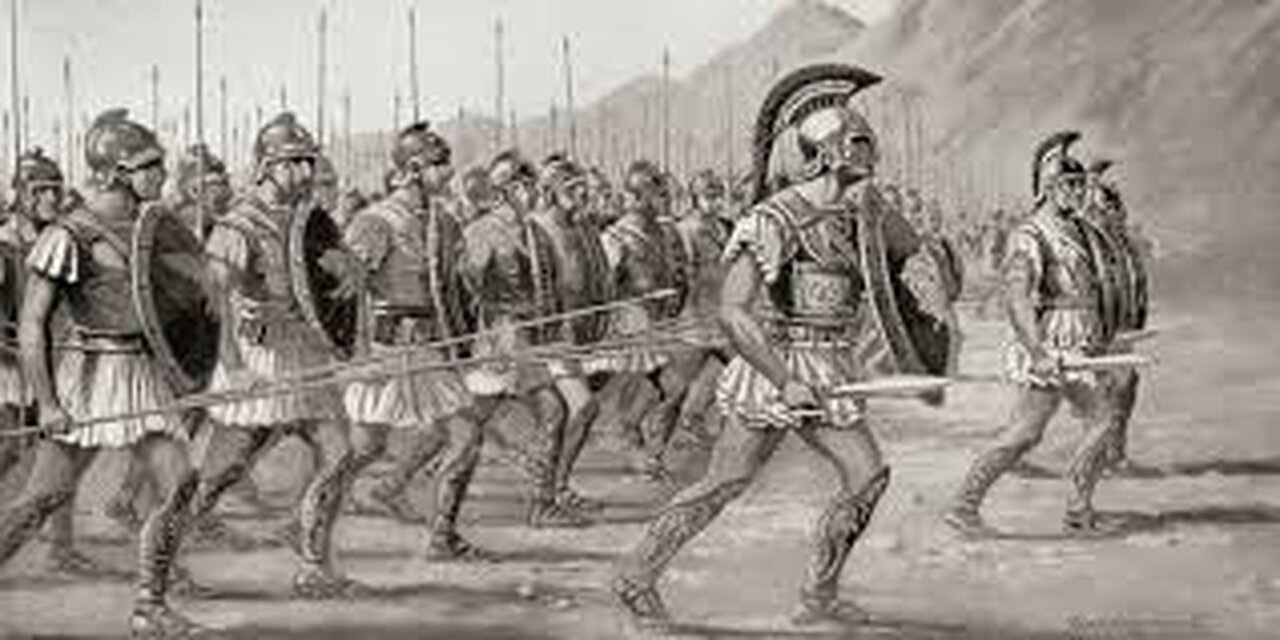Premium Only Content

Alexander the Great Indian Mission
Alexander the Great’s campaign into India (327–325 BCE) marked the easternmost expansion of his conquests. This phase of his military campaigns is often referred to as his Indian Mission, where he encountered new challenges, fierce resistance, and a dramatically different environment compared to his earlier conquests in the Persian Empire. Here’s a summary of the key events and significance of Alexander's Indian Mission:
Entry into India
After defeating the Persian Empire, Alexander turned his attention further east, towards the Indian subcontinent, which was known to the Greeks as “Indus” or “India.” He crossed the Hindu Kush mountain range and descended into the region of modern-day Afghanistan and Pakistan in 327 BCE.
Confrontations with Local Rulers
In the areas now known as the northwestern parts of Pakistan and Afghanistan, Alexander faced local rulers like the Aspasioi and the Assakenoi tribes. These were formidable warrior tribes who offered stiff resistance, forcing Alexander to conduct a series of difficult mountain campaigns. Eventually, he subdued them, albeit with heavy losses to his own forces.
Battle of the Hydaspes River (326 BCE)
One of the most famous battles of Alexander’s Indian campaign was the Battle of the Hydaspes River in 326 BCE. This battle took place near the modern-day Jhelum River in Pakistan against King Porus, a local ruler who governed the region between the Jhelum and Chenab rivers.
Porus's Army: Porus commanded a well-organized force, including a formidable contingent of war elephants, which were new to Alexander's army and posed a unique challenge.
Alexander’s Strategy: To counter the elephants and the significant numerical advantage of Porus’s forces, Alexander used his characteristic strategic brilliance. He divided his troops, crossed the river at night in a surprise maneuver, and attacked Porus's army from multiple sides.
Outcome: Despite fierce resistance from Porus and his war elephants, Alexander's tactical superiority won the day. Impressed by Porus's bravery and leadership, Alexander allowed him to retain his kingdom and even expanded his territory, making him an ally.
Eastward Push and Mutiny
Following the victory at the Hydaspes, Alexander continued to push east, aiming to reach the Ganges River and perhaps further into the heart of India. However, as the campaign progressed, his troops grew increasingly weary and homesick after years of continuous warfare.
Army’s Mutiny at the Hyphasis River (Beas River): When they reached the Hyphasis River (modern-day Beas River), Alexander’s troops refused to march further into India. They were intimidated by reports of vast kingdoms and large armies further east, as well as the difficult terrain and heavy monsoons they had encountered.
Decision to Turn Back: Realizing the limits of his army’s endurance, Alexander reluctantly decided to turn back. He built twelve massive altars at the Beas River as a symbolic end to his conquests and a tribute to the gods for his successes.
Return Journey and the Gedrosian Desert
On their way back, Alexander divided his forces:
A portion of his army was sent by sea under the command of Nearchus, who navigated along the coast of the Arabian Sea.
Alexander himself led the rest of the army through the Gedrosian Desert (modern-day Balochistan in Pakistan). This journey was brutal, with many of his soldiers perishing due to the extreme heat, lack of water, and harsh conditions.
Legacy of Alexander’s Indian Campaign
Cultural Exchange: Alexander’s Indian campaign led to significant cultural interactions between the Greek and Indian civilizations. This cross-cultural influence lasted well beyond Alexander’s lifetime, contributing to the development of the Greco-Bactrian and Indo-Greek kingdoms.
Spread of Hellenism: Greek culture, philosophy, art, and ideas were introduced to the regions of northwestern India and Afghanistan. These influences are evident in the Gandhara region, where a unique blend of Greek and Indian art forms emerged.
Impact on Indian History: Although Alexander did not penetrate deeply into the Indian subcontinent, his incursion marked the first direct contact between the Greek world and India. It also indirectly set the stage for the rise of the Maurya Empire under Chandragupta Maurya, who unified much of northern India after Alexander’s departure.
Alexander’s Indian mission, while falling short of his original ambitions to conquer all of India, left a lasting impact on the region’s history, shaping the subsequent dynamics between the East and the Hellenistic world. His campaign in India is remembered as a testament to his ambition, military skill, and the resilience of his troops in the face of daunting challenges.
#war #
-
 8:13
8:13
WhaddoYouMeme
17 hours agoThis Gets More Tragic By The Second
6263 -
 40:47
40:47
SouthernbelleReacts
2 days agoThe Faculty (1998) | Back-to-School Horror Movie Reaction | Alien Invasion in High School!
6111 -
 6:58
6:58
Adam Does Movies
17 hours ago $0.05 earnedCaught Stealing - Movie Review
598 -
 23:41
23:41
JohnXSantos
14 hours agoI Built a $1M Clothing Line for My Toddler in Just 14 Days
4751 -
 30:00
30:00
Nicholas Bowling
13 hours ago30 Minutes of EXPOSING Religious Hypocrites! (They Literally Run Away)
380 -
 LIVE
LIVE
Joe Donuts Live
3 hours ago🟢 BF2042 Explosive Action: Training for Battlefield 6!
125 watching -
 47:29
47:29
Man in America
20 hours agoIT DOESN'T ADD UP: The Trans Shooter's Story Is FULL of Holes
77.6K99 -
 LIVE
LIVE
FyrBorne
11 hours ago🔴Warzone M&K Sniping: Through the Fyr And Flames (Of SBMM)
139 watching -
 LIVE
LIVE
Dorian_D
1 day ago🔴 Dorian's First-Time Mega Man Legends 2 Playthrough: Full Gameplay Adventure!
51 watching -
 41:08
41:08
The Finance Hub
20 hours ago $0.12 earnedBREAKING: MELANIA TRUMP JUST DROPPED A MAJOR BOMBSHELL!!!
4213